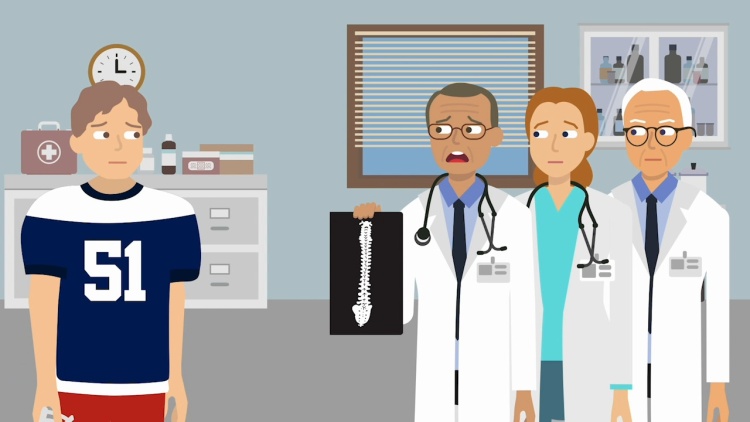Schultz v. Los Angeles Dons, Inc.
California Court of Appeal
238 P.2d 73 (1951)
- Written by Lauren Petersen, JD
Facts
Eberle Schultz (plaintiff) was a professional football player. While playing football for the Los Angeles Rams, Schultz injured his back. A physician affiliated with another team, the Los Angeles Dons (the Dons) (defendant), examined Schultz. The physician declared Schultz to be in excellent physical condition. Schultz signed a contract with the Dons to play the 1948 football season for a salary of $8,000. Schultz began training with the Dons on July 14, 1948. Four days later, he developed pain and numbness in his leg and foot. The team’s trainer treated Schultz’s injury to no avail. Three orthopedic specialists examined Schultz. They reported to the Dons that Schultz had a herniated disc in his lower back and would not be able to continue playing football. Schultz continued to report to practice daily but could not participate in strenuous training. On August 12, Schultz’s coach informed Schultz that the Dons had terminated his contract. The Dons alleged that Schultz had failed to perform one of the terms in his contract, which required him to be in proper physical condition to play football. Schultz sought the advice of a fourth orthopedic specialist, Dr. Billig. Dr. Billig diagnosed Schultz with sciatic neuritis and treated Schultz successfully. By August 23, Dr. Billig had released Schultz to fully resume playing football. Schultz attempted to find a place on a different professional football team but was unsuccessful. Schultz’s attorney notified the Dons that Schultz’s injury had been sustained when training with the team and that Schultz wished to continue performing under his contract. The Dons paid Schultz $500 but refused to allow him to resume training with the team. On October 25, Schultz sued the Dons for breach of contract and damages in the amount of $7,500. Specifically, Schultz alleged that the Dons had not permitted him to fully perform his contractual obligations and that his contract was terminated without cause. The trial court found in favor of Schultz. The Dons appealed. On appeal, the Dons argued that Schultz had failed to perform under the contract and had provided no excuse for nonperformance.
Rule of Law
Issue
Holding and Reasoning (Vickers, J.)
What to do next…
Here's why 911,000 law students have relied on our case briefs:
- Written by law professors and practitioners, not other law students. 47,100 briefs, keyed to 997 casebooks. Top-notch customer support.
- The right amount of information, includes the facts, issues, rule of law, holding and reasoning, and any concurrences and dissents.
- Access in your classes, works on your mobile and tablet. Massive library of related video lessons and high quality multiple-choice questions.
- Easy to use, uniform format for every case brief. Written in plain English, not in legalese. Our briefs summarize and simplify; they don’t just repeat the court’s language.





